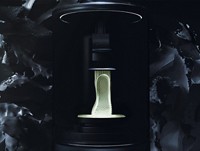Advertisement
Grab your lab coat. Let's get started
Welcome!
Welcome!
Create an account below to get 6 C&EN articles per month, receive newsletters and more - all free.
It seems this is your first time logging in online. Please enter the following information to continue.
As an ACS member you automatically get access to this site. All we need is few more details to create your reading experience.
Not you? Sign in with a different account.
Not you? Sign in with a different account.
ERROR 1
ERROR 1
ERROR 2
ERROR 2
ERROR 2
ERROR 2
ERROR 2
Password and Confirm password must match.
If you have an ACS member number, please enter it here so we can link this account to your membership. (optional)
ERROR 2
ACS values your privacy. By submitting your information, you are gaining access to C&EN and subscribing to our weekly newsletter. We use the information you provide to make your reading experience better, and we will never sell your data to third party members.
3-D Printing
New 3-D printing company gets help from BASF
The firm, Origin, raised $10 million in its series A round
by Alexander H. Tullo
November 8, 2018
| A version of this story appeared in
Volume 96, Issue 45

Origin, a San Francisco-based three-dimensional printing start-up, has raised $10 million in its series A financing round and taken on BASF as a materials development partner.
Two software designers, one from Apple and the other from Google, founded Origin in 2015. It originally made prototype parts for hardware makers around Silicon Valley.
The firm has since developed what it calls an “open additive production” platform that includes 3-D printing equipment, software, and materials.
Origin’s printing machine is still under wraps, but the firm says it will use a reactive chemistry system, akin to stereolithography, in which light waves trace parts out of photopolymers such as acrylates or epoxies. To that end, Origin is working with photopolymers from BASF.
BASF has been making a push into 3-D printing. Just recently, BASF Venture Capital announced it is investing in Prismlab, a Shanghai-based 3-D printing company.
Chris Prucha, Origin’s CEO and cofounder, boasts that his system is four to 10 times as fast as the competition, depending on the material being processed.
The company is targeting apparel markets, such as footwear, and automotive components. “We are really focused on what we call additive mass production,” Prucha says. “Not just making a prototype but making an end use part that is inexpensive enough that it can be mass produced.”
Jason Krikorian of the Venture Capital firm DCM Ventures led the financing round. While it was still in stealth mode, Origin received $2.3 million in funding from the venture capital firm Floodgate, Stanford University, and former NFL quarterback Joe Montana.



Join the conversation
Contact the reporter
Submit a Letter to the Editor for publication
Engage with us on Twitter